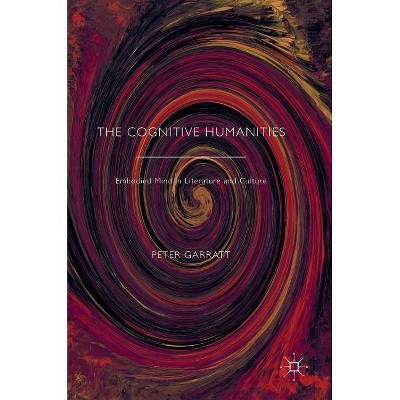Political Grammars - (Square One: First-Order Questions in the Humanities) by Davide Tarizzo (Hardcover)

Similar Products
Products of same category from the store
AllProduct info
<p/><br></br><p><b> About the Book </b></p></br></br>"Do we need to be a "people," populus, in order to embrace democracy and live together in peace? What exactly do we mean by nationality or nationhood? In this book, moral philosopher Davide Tarizzo takes up the problem of modern democratic "peoples," proposing that Jacques Lacan's theory of subjectivity enables us to clearly distinguish between the notion of (personal) identity and the notion of subjectivity, and that this very distinction is critical to understanding the nature of "peoples" or "nations.""--<p/><br></br><p><b> Book Synopsis </b></p></br></br><p>Do we need to be a people, <i>populus</i>, in order to embrace democracy and live together in peace? If so, what is a <i>populus</i>? Is it by definition a nation? What exactly do we mean by nationality? </p> <p>In this book, Davide Tarizzo takes up the problem of modern democratic, liberal peoples--how to define them, how to explain their invariance over time, and how to differentiate one people from another. Specifically, Tarizzo proposes that Jacques Lacan's theory of the subject enables us to clearly distinguish between the notion of personal identity and the notion of subjectivity, and that this very distinction is critical to understanding the nature of nations whose sense of nationhood does not rest on any self-evident identity or pre-existent cultural or ethnic homogeneity between individuals. Developing an argument about the birth and rise of modern peoples that draws on the American Declaration of Independence of 1776 and the French Declaration of the Rights of Man and the Citizen of 1789 as examples, Tarizzo introduces the concept of political grammar--a phrase that denotes the conditions of political subjectification that enable the enunciation of an emergent we. Democracy, Tarizzo argues, flourishes when the opening between subjectivity and identity is maintained. And in fact, as he compellingly demonstrates, depending on the political grammar at work, democracy can be productively perceived as a process of never-ending recovery from a lack of clear national identity. </p><p/><br></br><p><b> Review Quotes </b></p></br></br><br>A brilliant psychoanalytic exploration of the unconscious communities that undergird the nationalist democracies of our contemporary world.--John P. McCormick "University of Chicago"<br><br>Braving the barricades of theory and vaulting the ramparts of abstraction, Davide Tarizzo battles the inner frontiers that separate beings and subjugate collectivities. A leviathan of a book.--Peter Goodrich "Cardozo Law"<br><br>Reading Lacan extensively, in detail and with a deep commitment to psychoanalysis, inspired Davide Tarizzo to renovate political theory. The resulting opus provides asharp andstrikingly original conceptualization of 'collective subjectivities' that should have an important impact.--Jacques-Alain Miller "World Association of Psychoanalysis"<br><p/><br></br><p><b> About the Author </b></p></br></br><b>Davide Tarizzo</b> is Associate Professor of Moral Philosophy at the University of Salerno, Italy. He is the author of <i>Life: A Modern Invention</i> (2017) in English.
Price History
Price Archive shows prices from various stores, lets you see history and find the cheapest. There is no actual sale on the website. For all support, inquiry and suggestion messages communication@pricearchive.us




















